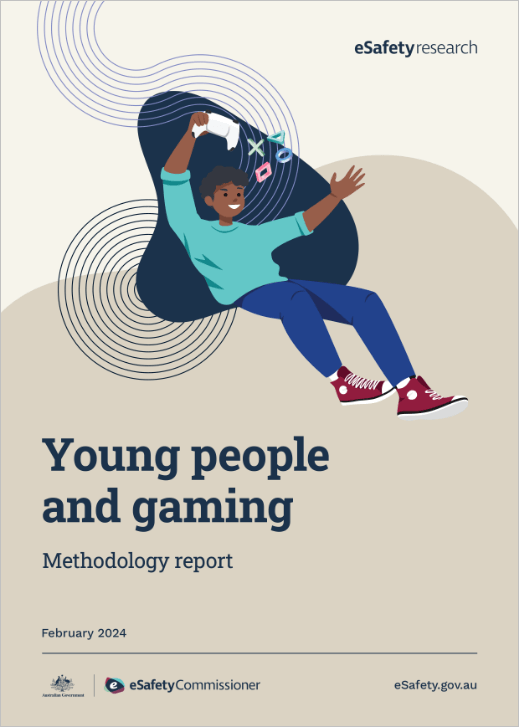The risks and benefits of online gaming for children and young people

This report looks at the gaming experiences of 1,799 children and young people in Australia aged 8 to 17 years old who play video games online. It draws on the results of a mixed-methods study carried out by eSafety in August and September 2023.
The report explores:
- children and young people’s participation in online gaming
- children and young gamers’ positive and negative gaming experiences
- the online safety practices of children and young people, and their parents and carers
- the disconnect between young people’s gaming experiences and their parent and carers’ perceptions of gaming, and young people’s desire for adults to understand why they enjoy it
- how the findings might be utilised to support children and young people to have safe and positive online gaming experiences.
Summary of key findings
- Most of the young gamers surveyed reported having positive experiences. The majority of young gamers felt online gaming was good for their skill development or learning, social connections and/or emotional wellbeing.
- Four out of 10 had negative experiences while gaming, and 3 in 10 teen gamers had been exposed to potentially harmful ideas while gaming.
- It was relatively common for negative online gaming experiences to negatively impact young gamers’ self-esteem or other aspects of their emotional wellbeing.
- Most parents and carers, as well as young gamers themselves, were proactive about taking steps to stay safe while gaming online.
- Only a small proportion of young gamers who had negative experiences had reported these to the relevant gaming platform or moderators.
- Young gamers wanted more to be done to keep them safe while gaming online, especially by the gaming industry and through education.
Young gamers in the study emphatically wanted parents, carers and other adults to understand what gaming is like for them, and many would welcome the opportunity to game with their parents and carers.

